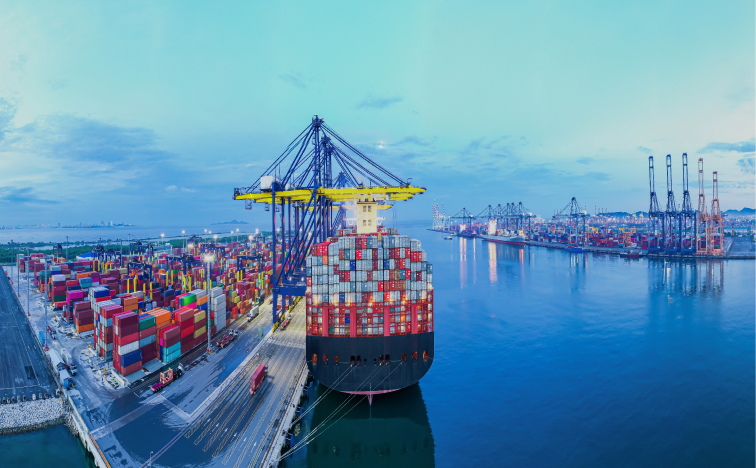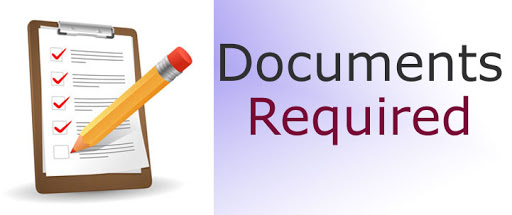- By TOP CHINA FREIGHT
- September 12, 2025
- Shipping
Table of Contents
DDP shipping from China to US has become one of the most practical choices for importers, especially small and medium-sized businesses. With Delivered Duty Paid, the seller is responsible for transporting goods, clearing customs, and covering import duties before final delivery. This eliminates uncertainty and ensures predictable expenses.

What is DDP Shipping from China to US?
DDP (Delivered Duty Paid) is an Incoterm where the seller assumes nearly all responsibilities until the goods arrive at the buyer’s location. Unlike FOB or CIF, where the buyer handles customs, DDP covers the entire process.
Main responsibilities under DDP:
- Export packaging and labeling
- Freight booking (air or sea)
- Customs clearance in both China and the US
- Import duties and taxes
- Final delivery to the buyer’s warehouse
For importers, this arrangement removes the stress of dealing with customs brokers or unexpected duty payments.
How Much Does DDP Shipping from China to US Cost?

The cost of DDP shipping depends on multiple variables such as cargo weight, shipment method, and customs tariffs. Below is an overview of average rates:
| Shipping Method | Cost Estimate | Transit Time | Best Use Case |
|---|---|---|---|
| Sea Freight DDP (20ft) | $4,000 – $6,000 | 25–40 days | Large, heavy cargo |
| Sea Freight DDP (40ft) | $6,500 – $9,500 | 25–40 days | High-volume imports |
| Air Freight DDP (per kg) | $7 – $12 | 5–10 days | Small, high-value goods |
Note: Costs vary by origin port, destination state, product type, and seasonal demand.
What Factors Determine DDP Shipping Costs?
Several factors influence the final invoice for DDP shipping:
1.Shipment Size and Weight
Larger volumes increase sea freight costs but reduce unit cost.
2.Cargo Type
Fragile, hazardous, or temperature-sensitive goods require special handling.
3.Origin and Destination
Shipping from inland Chinese cities adds trucking expenses; delivery to remote US states also increases last-mile costs.
4.Customs Tariffs
Import duties vary depending on HS codes and product category.
5.Seasonality
Costs rise sharply before Chinese New Year and during US holiday seasons.
6.Fuel Surcharges
Oil price fluctuations affect both sea and air freight.
By negotiating terms clearly and booking early, importers can avoid sudden cost increases.
How Long Does DDP Shipping Take from China to US?
Transit times vary depending on the chosen mode and final delivery location.
| Destination Port/City | Sea Freight DDP | Air Freight DDP |
|---|---|---|
| Los Angeles / Long Beach | 25–30 days | 5–6 days |
| New York / New Jersey | 35–40 days | 6–7 days |
| Houston | 28–35 days | 6–8 days |
| Chicago (inland) | 30–38 days | 7–9 days |
Sea freight is best for cost efficiency, while air freight is the go-to choice for urgent shipments.
What Documents Are Required for DDP Shipping?

| Document | Function |
|---|---|
| Commercial Invoice | Declares value and product details |
| Packing List | Itemizes contents for customs inspection |
| Bill of Lading / Airway Bill | Proof of carriage |
| Import Customs Declaration | Ensures legal entry into the US |
| Certificate of Origin | Confirms manufacturing country |
| Special Licenses | Needed for restricted goods (food, medical items, electronics) |
Importers should double-check HS codes to ensure accurate duty calculation.
Why Do Importers Prefer DDP Shipping?
Advantages
- All-inclusive pricing eliminates hidden costs.
- Simplified logistics since the seller manages the process.
- Reduced risk of delays with customs handled by professionals.
- Ideal for new importers lacking logistics expertise.
Disadvantages
- Higher upfront price than FOB or CIF.
- Less control over carrier choice and transit routes.
- Reliance on seller’s forwarder may limit transparency.
Case Study: DDP Sea Freight Electronics Shipment

A US electronics distributor imported 20ft containers of accessories via DDP sea freight from Shenzhen to Los Angeles.
- Cargo: 12 tons of mixed electronics
- Method: Sea Freight DDP
- Total Cost: $5,200 (including customs and duties)
- Transit Time: 29 days
- Outcome: The shipment cleared customs smoothly, and the distributor avoided unexpected duty charges, keeping retail prices stable.
This example shows how DDP simplifies supply chains for importers who value predictability.
How to Reduce DDP Shipping Costs
Consolidate Shipments:
Combine multiple orders into one container.
Negotiate with Multiple Forwarders:
Prices vary by 10–20%.
Ship During Off-Peak Seasons:
Avoid Chinese New Year and Golden Week.
Optimize Packaging:
Reduce volumetric weight for air freight.
Request Transparent Quotations:
Ensure customs, delivery, and surcharges are included.
What Alternatives Exist to DDP Shipping?
While DDP is highly convenient, other Incoterms may suit experienced importers:
FOB (Free on Board):
Buyer arranges freight and customs after goods are loaded.
CIF (Cost, Insurance, Freight):
Seller covers shipping, but buyer pays import duties.
DAP (Delivered at Place):
Seller delivers goods but duties are paid by the buyer.
For businesses with logistics expertise, these terms may offer cost savings compared to DDP.
Industry Trends in DDP Shipping 2025
US customs authorities are increasing inspections on electronics and textiles.
Real-time shipment visibility is becoming standard.
Green shipping strategies may impact freight rates.
DDP is increasingly used for Amazon FBA shipments.
Conclusion
DDP shipping from China to US provides a reliable and hassle-free import solution. Although slightly more expensive than FOB or CIF, it simplifies customs clearance, reduces risk, and ensures predictable costs. Working with an experienced freight forwarder makes the DDP process even smoother, as they handle documentation, duties, and last-mile delivery.
Need a Shipping Quote?
If you want expert guidance and peace of mind, our team is ready to assist.
TJ China Freight offers tailored solutions to help businesses of all sizes ship more reliably from China.

FAQ
Q1:Is DDP shipping legal for all product categories?
Not for every product. Some categories like medical devices, chemicals, or restricted electronics require licenses. Importers should confirm with the seller before shipping.
Q2:Does DDP shipping cover customs inspections in the US?
Yes. The seller is responsible for clearance. However, if customs requires additional checks, delays may occur, which should be addressed in the shipping contract.
Q3:Can small e-commerce businesses use DDP?
Absolutely. Many Amazon FBA sellers prefer DDP since it ensures goods arrive at warehouses without customs complications. It’s especially useful for businesses with limited logistics experience.
Q4:How does DDP compare with CIF in total cost?
DDP may seem more expensive initially, but when factoring in duties, customs brokerage, and last-mile delivery, it often provides better cost predictability than CIF.
Q5:What happens if my goods are delayed at customs?
Under DDP terms, the seller must handle the issue. Importers should ensure contracts specify responsibility for extra storage fees or re-inspection charges.
